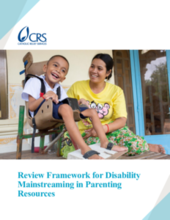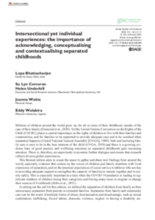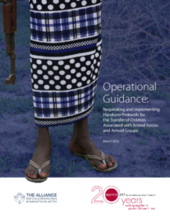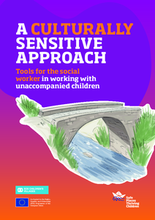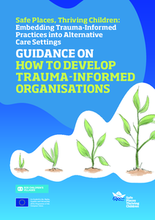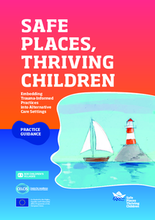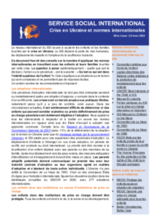Displaying 251 - 260 of 1343
The purpose of this U.S.-based study was to determine whether children with developmental disorders (DDs) in protective custody are more likely to experience specific placement types and stay in care longer than their typically developing peers. Furthermore, in the DD-only group, the authors examined whether the likelihood of each placement type differed by specific DD diagnosis.
This Framework for Disability Mainstreaming in Parenting Resources is a tool to help organizations and practitioners to review existing parenting resources in terms of information and content gaps, limitations of instructional guidance, and at-home activities. The aim of the framework is to ensure parenting resources are inclusive of the needs of parents of children with disabilities ages 0 to 17 years.
The Eastern and Southern Africa Regional Learning Platform hosted a webinar on April 13, 2022, featuring a panel of people with lived experience in care.
In this editorial published in the special edition of the Global Studies of Childhood journal focused on separated childhoods in April 2022, the authors aim to create the space to gather and share new findings from around the world, especially evidence that centres on the voices of children and family members with lived experience of separation, and on the practical experiences of social service workforce who are key to providing adequate support to strengthen the capacity of families to remain together and to reunite safely.
A joint endeavor of Watchlist on Children and Armed Conflict, the Alliance, and its CAAFAG Task Force, the operational guidance aims to support the signing and implementation of handover protocols. It provides child protection actors with good practices, lessons learned, and other useful information on previous and ongoing negotiations and implementation processes in various countries.
This resource was developed by SOS Children's Villages Belgium as an annex to the Practice Guidance. This tool provides guidance for social workers working with unaccompanied refugee and migrant children on how to use trauma-informed practices in a culturally sensitive way.
The Guidance Document was developed to support organisations taking part in the Organisational Development workshops for the project. Through the workshops, we aim to establish a trauma-informed culture in organisations that care for and support children and young adults in alternative care.
As part of the “Safe Places, Thriving Children” project, SOS Children’s Villages has developed a series of six e-learning modules which aim at increasing participants’ understanding of trauma and its effects on children and young people, and provide guidance on how to act in a more trauma-sensitive way when working with children, young people and families.
The Practice Guidance was developed by CELCIS and SOS Children’s Villages as a resource for participants taking part in the “Safe Places, Thriving Children” training. The purpose of this guidance is to improve understanding and practice in relation to working with children and young adults who live in alternative care settings and who may have experienced trauma.
Ce document fournit des conseils sur la manière d'appliquer les normes internationales lorsque vous travaillez avec des enfants et leurs familles touchés par cette crise. La question à poser, systématiquement - quelle que soit la décision, l'action ou le processus - est "qu'est-ce qui est dans l'intérêt supérieur de l'enfant?" Cela s'applique à des situations sur le terrain qui sont complexes et ne permettent pas de réponses faciles.


